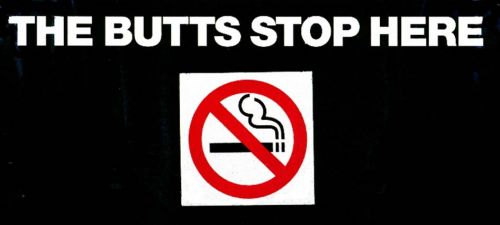Anti-smoking product ads help smokers quit
 If you're a smoker, apparently you don't even have to try a "smoking cessation product" to get some positive health benefits. A recent study demonstrated that merely being exposed to advertisements for smoking cessation products had "spillover effects" that led to an increased likelihood of quitting smoking.
Using databases on the consumer behavior and magazine-reading habits of 28,303 current or former smokers and advertising data in 26 consumer magazines, Mathios and three Cornell colleagues explored the impact of advertising of smoking-cessation products on quitting decisions. They found that although some of the increased quitting behavior involves buying smoking-cessation products, just seeing the ads make it more likely that smokers will try to quit. "Thus, the public health returns to smoking-cessation product advertisements exceed the private returns to the manufacturers," write the researchers.
Independent of the impact of advertising, smokers who do not read any magazines are less likely to try to quit, while smokers who read magazines that refuse cigarette ads or who read specialty magazines related to parenting or health are more likely to attempt to quit, the researchers reported.
They also calculated that if the smoking-cessation product industry increased its average annual spending on magazine advertising by about $2.6 million or 10 percent, the average smoker would see 2.1 more ads each year; according to their calculations, this would translate to about 80,000 additional quits each year. About 45 million people in the United States now smoke.
And of course, if the smoking-cessation product industry increased its average annual spending by about $400 zillion, the whole planet will become a healthy utopian paradise of love and delight... because what any industry wants to do is spend money on advertising that doesn't even require consumers to try the product to get a benefit. Ah well; the good news is, it isn't just smokers who stand to benefit:
Mathios noted that the results of this study may also apply to other types of pharmaceutical advertising. For example, when patients discuss with their physicians an advertised drug that lowers cholesterol, physicians will often recommend such health behavior changes as diet and exercise, creating a positive spillover effect from the advertising.
This whole scenario is just so weird. I thought the only thing that could change the behavior of the average American is a hurricane or a flood. Who knew!
|

Recently @ DoseNation
|
|





















